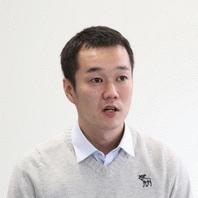![]()
![]()
Research Support Office Research Advancement Division. Tokyo University of Agriculture and Technology
| TEL | +81-42-367-5944 |
|---|---|
| FAX | +81-42-367-5946 |
This program is supported by MEXT’s scientific technology human resource development fee grant, "Program to Disseminate Tenure Tracking System".
Home > Tenured Faculties > Ikegami Takashi

Ikegami Takashi

| Affiliation | Institute of Engineering |
|---|---|
| Division | Division of Advanced Mechanical Systems Engineering |
| Research field | Energy system engineering, Home energy management |
| Keyword(S) | Energy management, Renewable energy, Power system operation |
| Url | http://web.tuat.ac.jp/~ikegami/en/ |
| Research experience | ・Apr.2007 - Jun.2009: Postdoctral fellow, Center for Global Environmental Research, National Institute for Environmental Studies |
|---|---|
| Educational background | ・Mar.2001: B.Eng, Department of Chemical System Engineering, Faculty of Engineering, the University of Tokyo |
| Awards | * The latest information is shown at the member's website. |
| Selected papers and publications | * The latest information is shown at the member's website. |
To establish a sustainable energy supply system, large-scale deployment of renewable energy generation, especially photovoltaics (PV) and wind power generation, is expected all over the world. Since it is difficult to store large amounts of electricity, power stations are operated to produce electricity at the time it is needed. PV generation and wind power generation are characterized by seasonal and hourly variations as well as irregular fluctuations caused by changes in the weather. Therefore, we need to solve various technical problems to maintain a stable power supply at the present level. In that, in the local distribution system, we must account for the excessive voltage increase, whereas in the entire power system, we must account for difficulties with the supply-demand balance control or changes in frequency.
In our laboratory, we study about home energy management systems (HEMS) to activate residential power demand, as shown in Figure. To achieve a supply-demand balance in future power systems, it is imperative that we should not only apply pumped-storage power generation or large-scale batteries on the supply side but also activate residential power usage, storage, and generation on the demand side. And, we also study social mechanisms contributing to promote HEMS using the methods of system analysis.
In this tenure track program, we can get various support for starting our own laboratory. For example, we can receive enough monetary assistance to launch studies, and are also allowed to have consultation with a mentor faculty on know-how as a faculty. Furthermore, tenured positions are opened for all tenure-track members in TUAT, and we have no rivalry with each other accordingly. Therefore, we all can develop through effective communication and collaborative research. This point is also very attractive for us.
I have had a good beginning of my research and education activities in TUAT by this tenure track program. To respond to expectations of more support from this program, I would like to put all of my effort not only into my studies to contribute to the realization of the sustainable energy supply-demand system, but also into education to develop human resources who can recognize new challenges in our society and solve their problems with their own abilities.